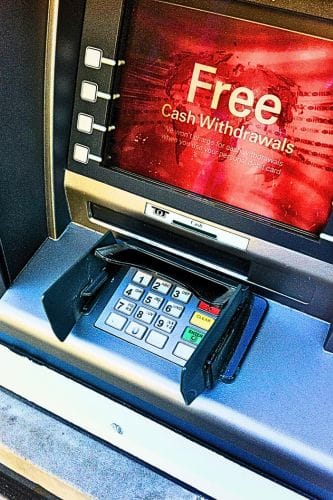I have worked on many Debit Card schemes for many organisations. I have developed systems for banks and for start-ups and have had to share knowledge and information with the good and the great and the not so good. I want to tell you a story.
I was working for a pre-paid card issuer – I’m not going to be any more specific than that as I would like to expose the lack of payment knowledge and transactional understanding across the payment world rather than point the finger at the individuals exposing that lack of payment knowledge.
So, we were building a pre-pay card proposition, and we were considering ways and means of adding cash to the card account. The usual suspects were considered: bank transfers from personal accounts and salary payments via BACS and Faster Payments, over the counter bank transfers, PayPoint and ePay, and we also considered top-ups from debit cards.
They all had their respective price points, some were expensive and some were less so, but they were all still a significant cost when compared to the anticipated top-up value.
I had excluded Direct Debits, and I had excluded them because of the Direct Debit Guarantee. I didn’t think it needed any further explanation, because we all know how Direct Debits work.
Direct Debits are very inexpensive, down to the huge numbers that are processed and the batch nature of the transfer. They are brilliant for what they do, and the reason that people are able to trust the Direct Debit system comes down to the Direct Debit Guarantee, which says that in the event of an error (or otherwise), there will be no problem retrieving any funds that were debited. You can always get your money back!
I discounted the use of Direct Debits as a top-up source, well actually I never counted them in the first place, but they were undeniably cheap, and the word coming down from the top was that they should have been including in the mix.
After some digging around, I managed to trace the source of this particular nugget to none other than the the Director of Banking! Hmmm!
I had little option but to arrange a chat with the Director of Banking, and we sat on a couple of sofas for a conversation that lasted around 30 minutes. In that time, I explained how the Direct Debit system worked, from a consumer initiating a payment request to an explanation of the batch processes leading to receiving funds into the settlement account before being applied to the cardholder’s account.
I explained the timings, and how it might work in practice, and then I mentioned the Direct Debit Guarantee. I explained that the Direct Debit Guarantee protected the debited account holder in perpetuity, and that there was no time limit to any account holder claim. I also explained that should one of our transactions be questioned, we would be obliged to return any funds claimed under said guarantee without delay, and operationally, they would be debited from the next settlement before we received it so we wouldn’t even have the option. The cash would just be repatriated, leaving us with the responsibility for chasing the funds.
The criminals and fraudsters would love it, it would be a gift.
I covered every angle, and during the discussion I wasn’t questioned on any of it. When I finished, and I had reiterated why using Direct Debits as a means of topping up a prepaid account would be a bad idea, the Director of Banking sat back on the sofa and told me that he didn’t believe it.
The Director of Banking was surrounded by people who looked to him for leadership and guidance when there was very little leadership and guidance in evidence – and there are more stories, maybe later.
I could have taken the path of least resistance and implemented Direct Debits on the wisdom of the Director of Banking. It may have been the tactical approach, securing my next payday, but I would have certainly lost my integrity.
Pre-paid top-up via Direct Debit was never implemented.








